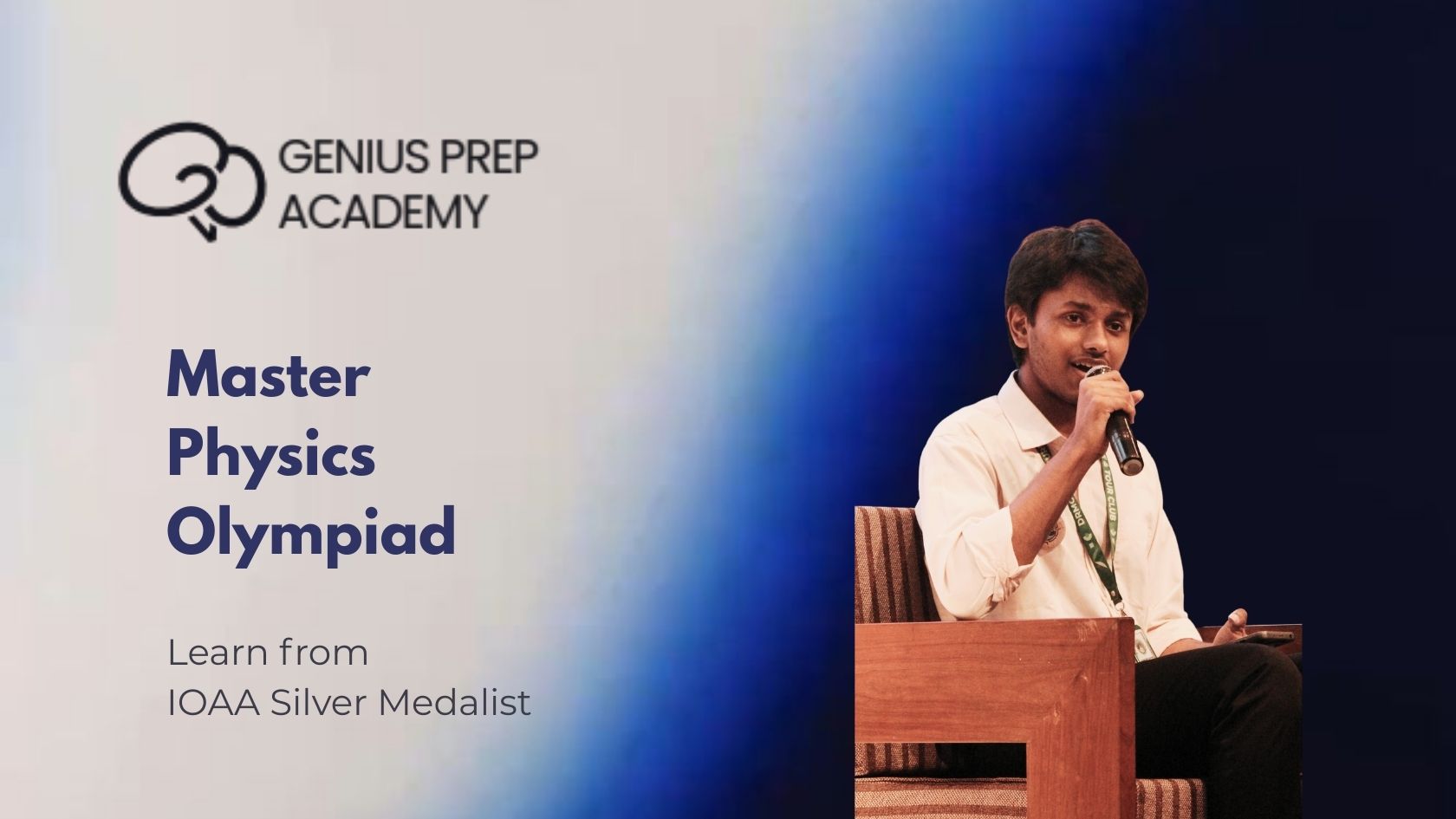
Physics
Olympiad
Explore all key areas of Physics with hands-on and olympiad-style problems
Hi! I’m Adnan Alamgir (Harvard University)
I’m the physics instructor at Genius Prep Academy, and if you’re ready to dive into the exciting whirlpool of physics, I’ll be your guide. Throughout high school, I competed in national Olympiads and had the honor of representing Bangladesh internationally. I was the first Bangladeshi to win a medal at the International Olympiad on Astronomy and Astrophysics (IOAA), earning a bronze in 2021 and a silver in 2023. I was also National Physics Olympiad Champion in 2024 and National Junior Science Olympiad Champion in 2019.
I completed my high school education at Dhaka Residential Model College and will be attending Harvard University (Class of 2029) this fall.
When I’m not teaching, I love landscape photography, working as a climate steward, and designing unrealistic paper plane models, all ways to explore curiosity and creativity in the world around us.
What you'll learn
- Mechanics, Energy, and Momentum: You will study forces, motion, and energy transfer. For example, you might calculate the speed of a rolling object on an incline or analyze collisions using momentum conservation.
- Rotational Dynamics: You will explore torque, angular momentum, and rotational motion. For instance, you could determine how a spinning disk behaves when forces are applied at different points.
- Electricity and Magnetism: You will dive into circuits, electric fields, and potentials. For example, you might find the current in a multi-loop circuit or calculate the force between two charged objects.
- Waves, Optics, Thermodynamics, and Kinetic Theory: You will study light, sound, heat, and the behavior of gases. For instance, you could predict how a lens forms an image, calculate the speed of sound in air, or determine the efficiency of a heat engine.
- Data Analysis and Experimental Reasoning: You will learn to interpret graphs, analyze experiments, and make quantitative predictions. For example, you might extract acceleration from position-time data or identify patterns in measurements from a lab setup.
- Olympiad Tactics: You will develop problem-solving strategies, estimation skills, and time management techniques. For instance, you might learn how to quickly model a complex problem or estimate quantities to check your answer before full calculations.